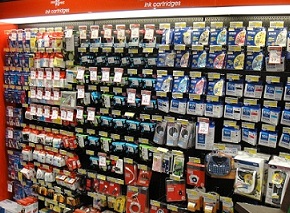Last week, outgoing Chairman of the ACCC Graeme Samuel took to the stage of the National Press Club in Canberra to discuss his achievements and those of the ACCC under his watch.
The speech was, not unexpectedly, positive about the ACCC and Graeme Samuel’s achievements.
Mr Samuel took the opportunity to talk about what he calls an expectation gap, a gap between what Australians expect and what the ACCC can deliver.
It is in discussing achievements the area of small business where Graeme Samuel talks about the expectation gap in the context of what the organisation can do versus what some say it should do (or have done). he also mentions tough love when discussing small business.
Reading and re-reading the section of the speech which deals with small business I get the impression that Graeme Samuel knows that he has let small business down and needs to explain why this is not his fault. He certainly gets the value of small business to the Australian economy:
The Australian economy depends on the contribution of small business. In recent times the sector has produced about one third of our Gross Domestic Product and employed almost half the workforce.
Mr Samuel then goes on to say that the ultimate obligation of the ACCC is to competition, suggesting this as an excuse to small business people concerned at the lack of action by the ACCC. That is how the speech reads at least.
My view is that Graeme Samuel failed Australians not only in the areas of newsagencies and small business areas but more broadly.
According to a PriceWaterhouseCoopers report in 2008, Coles and Woolworths then controlled up to 80 per cent of Australian grocery trade. This is up from 30 per cent in 1975. Once you add fuel and liquor who have two businesses in unassailable market share positions.
The market share of Coles and Woolworths has increased considerably under Mr Samuel’s watch. Back in 2003, Coles and Woolworths did not dominate, as they do today, fuel and liquor. They were not the kings of convenience that they are today.
While I have no evidence on which to base this, it feels to me as if there is less competition today than eight years ago when Mr Samuel entered office. Fewer butchers, greengrocers, hardware shops and newsagents … small businesses directly affected by the lack of action by the ACCC on these two retail giants getting bigger.
In terms of newsagents and the ACCC, the ACCC has failed to properly assess the impact of the deregulation of newspaper and magazine distribution which it watched over in 1999. No one knows if consumers are better off as a result of deregulation. Newsagents certainly know that the deregulation was only half completed and that the ACCC administered changed resulted in a free kick to Coles, Woolworths and others while lumbering newsagents with anti competitive business practices.
Despite repeated complaints by newsagents, the ACCC has failed to complete a warranted and appropriate study of the terms offered newsagents since deregulation.
The ACCC has also turned a blind eye to the use of the publicly owned Australia Post brand to take business from small business newsagents through 850 or so government owned post offices. Australia Post remains protected despite world’s best practice indicating that it itself should face competition. That it has remained protected while it has so aggressively gone after newsagent business is a blight on competition policy and on Mr Samuel’s ACCC.
Too often in the speech Mr Samuel runs for cover of the Act and politicians for protection. He was hired to make Australia a more competitive economy. By my assessment he has failed. Any such assessment must not only consider economic benefits, as these things usually tend to do. No, it must also measure social benefits. It is in the area of social benefits where newsagents and other small business retail channels serve well. Sure Coles and Woolworths give back but I suspect they do not give back as much as privately owned small businesses.
We give kids employment early in life, support community groups, help with fund raising, work with local sporting groups and schools, offer a more convenient shopping experience, are less likely to engage in manipulative and questionable pricing tactics and provide a personal human service.
The most important and valuable role of small businesses, and small business retailers in particular, is our participation in the community narrative. That is supporting, upholding and sharing the history and stories of the local community in which we serve.
Graeme Samuel has, in my view, failed small business over his eight years of tenure as Chairman of the ACCC. He has been a friend of big business and weak in dealing with politicians. Australians are left with a less competitive environment.
Click here to access a full copy of Graeme Samuel’s speech.
 Our latest Ink Sale is driving excellent new traffic. Ink is a terrific newsagency marketing tool – almost everyone has a printer at home and all businesses have printers. I love it when customers bring the flyer in, telling us how our prices are better than other much bigger retailers.
Our latest Ink Sale is driving excellent new traffic. Ink is a terrific newsagency marketing tool – almost everyone has a printer at home and all businesses have printers. I love it when customers bring the flyer in, telling us how our prices are better than other much bigger retailers.